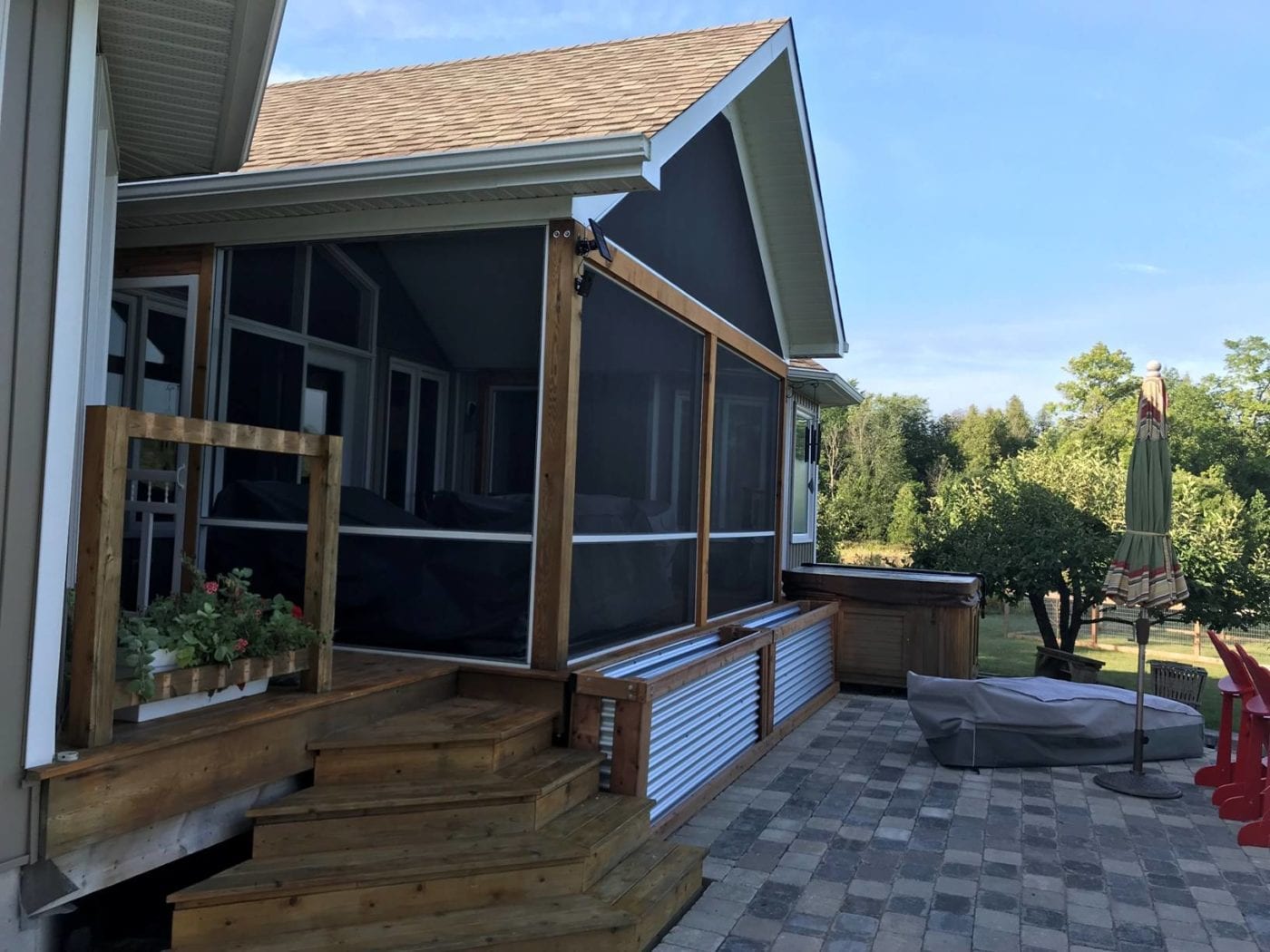Resource Articles
Roofing Solutions for Screen Porches
While deciding on a screening solution for your porch is a key component to the screen porch planning process, the roofing solution you decide to use is also of equal importance. There are several different types of roofs for screen porches. Some of the most common roofs include gable roofs, shed roofs, hip roofs and flat roofs. Here is everything you should know about each of these roofing solutions for screen porches.
Gable Roofs
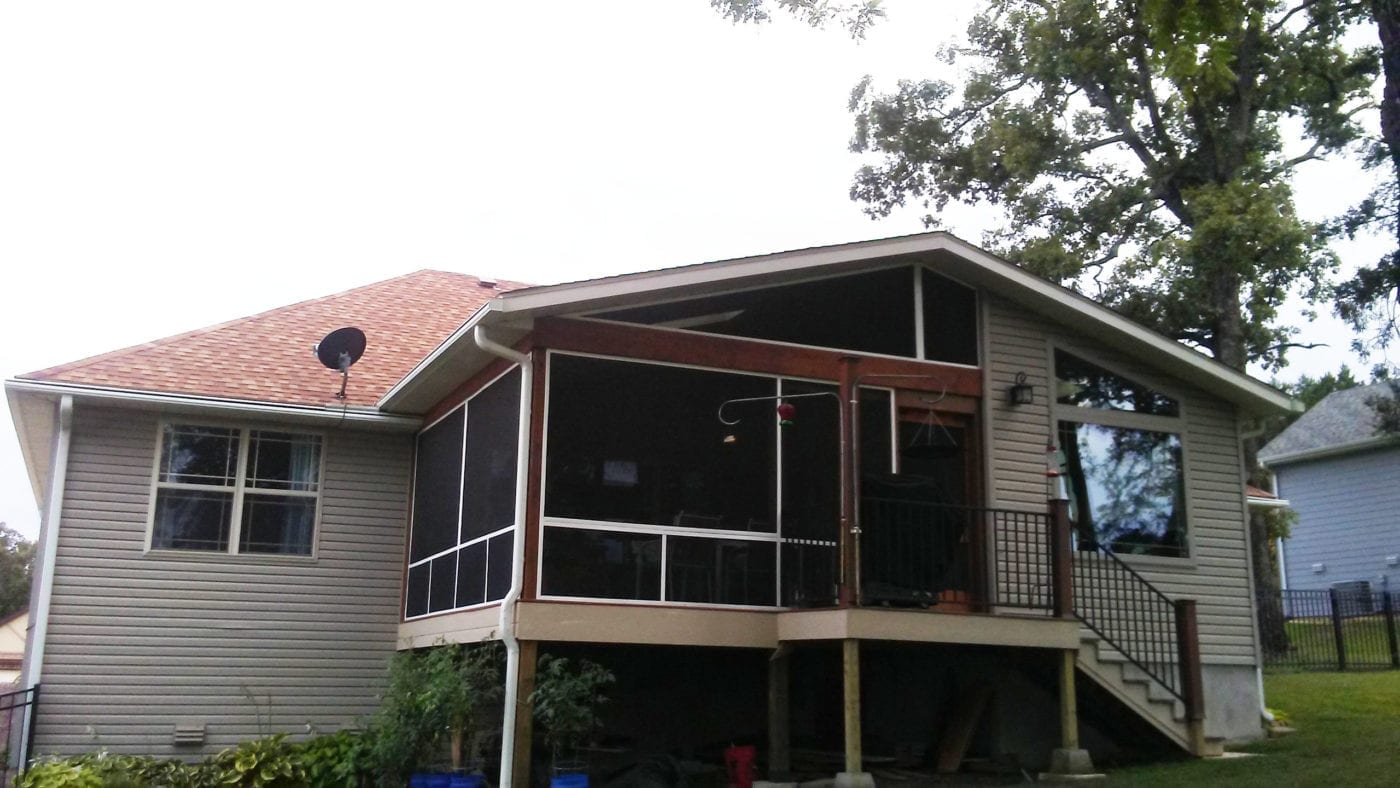
Gable roofs are probably the most common roofs you see with screen porches. Gable roofs resemble a triangle. The structure comes together in the middle to form a pitch and overhang the walls. This allows for water to run off the roof. Gable roofs only require simple roof framing. You do not need jack rafters and valleys. Gable roofs do require soffits and fascia (this refers to the area that overhangs the walls of the enclosure).
Shed Roofs
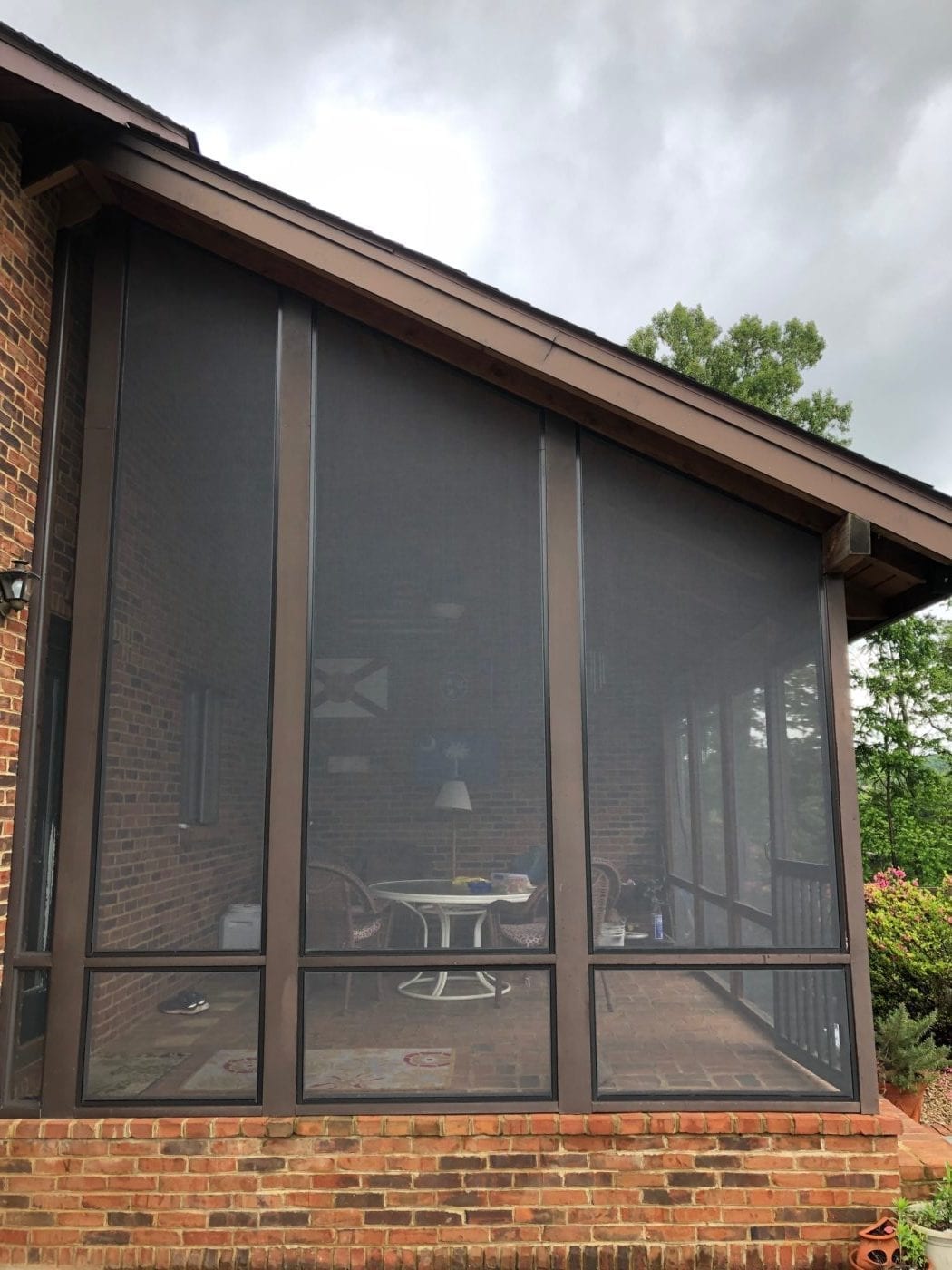
Shed roofs are another common screen porch roofing solutions. These roofs create a long sloped roof, attaching to the house wall and sloping downward. This roof style is ideal for longer, more narrow porches. If the porch is too wide, the roofline will look high and somewhat out of place.
Hip Roofs
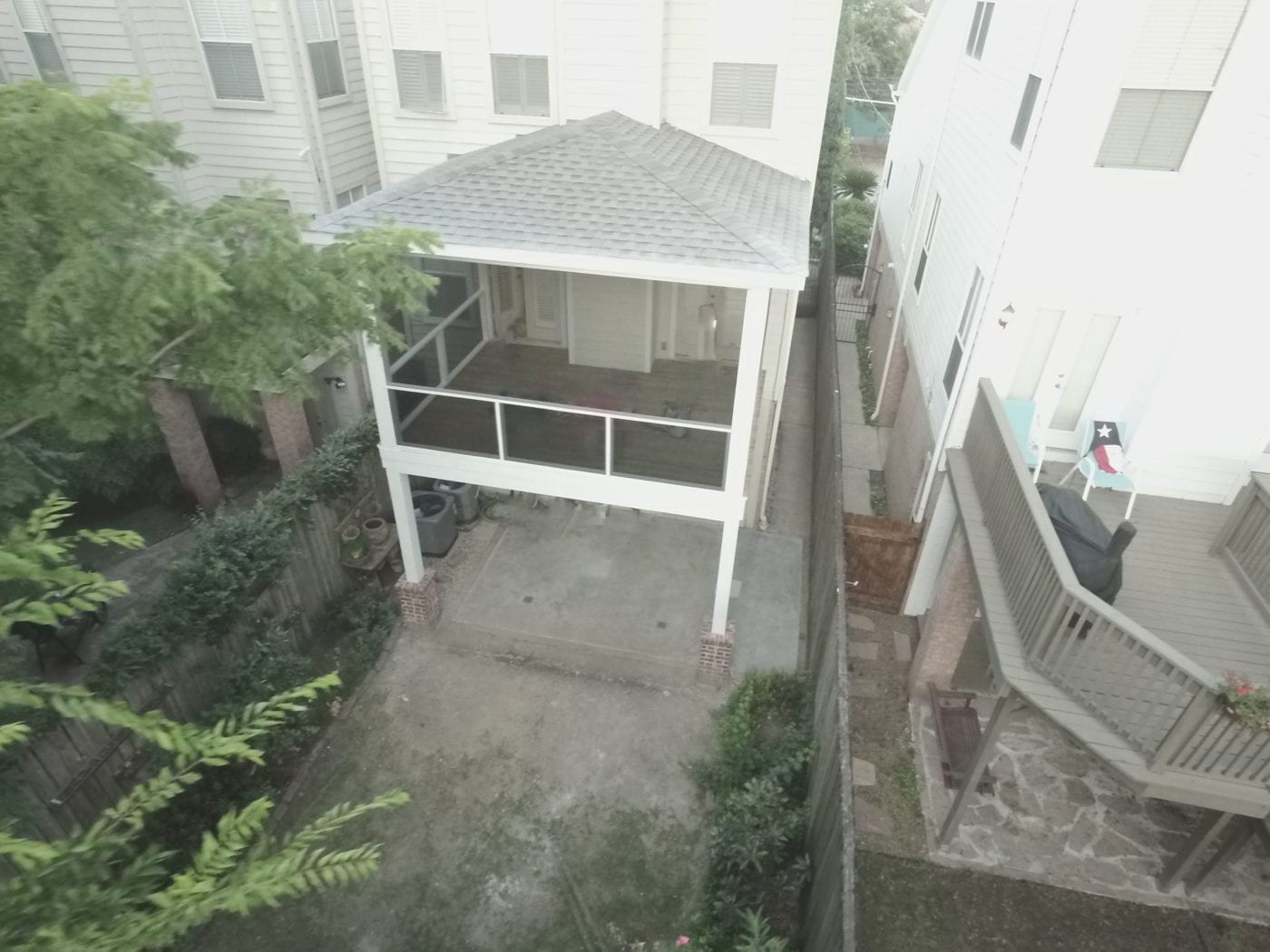
A hip roof is a more complex roofing structure. The structure resembles a pyramid, with each side sloping gently sloping downward. These roof structures are common on cottage homes, bungalow homes and ranch-style homes. The roof structure allows for an open, vaulted ceiling located in the interior. Constructing this porch isn’t the complex part, it’s maintaining the vaulted ceilings. Hip roofs often require a bit more building materials, which can make them more costly than gable roofs and other roofing solutions.
Flat Roofs
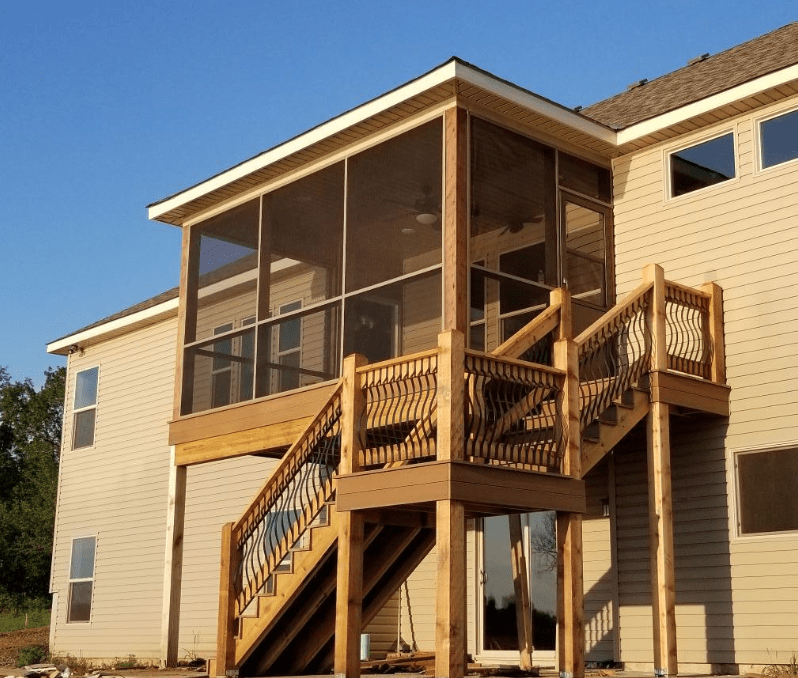
Flat roofs are exactly how they sound, flat. These are ideal for front porches with a flat fronts. They are also good for non-elevated, simple screen porch projects. The downside (no pun intended) to flat roofs, is that they do not drain very well. So if you live in a very wet or snowy climate, water or snow can accumulate on the roof.
Consider These Factors When Making a Selection:
Climate: Think about your local weather conditions. Gable and shed roofs are ideal for shedding rain and snow, while flat roofs may require additional drainage solutions in colder climates.
Style: Match your roof selection to your home’s architectural style for a cohesive look.
Budget: Gable and shed roofs are generally more affordable than hip roofs.
Still can’t decide what roof solution is ideal for your screen porch project? Check out photos of some of our past screen porch projects here.

